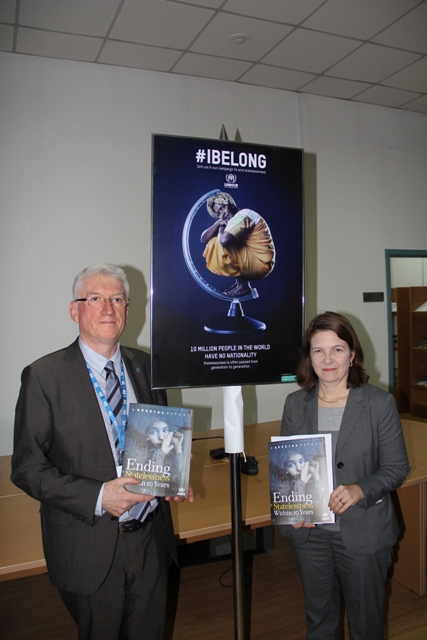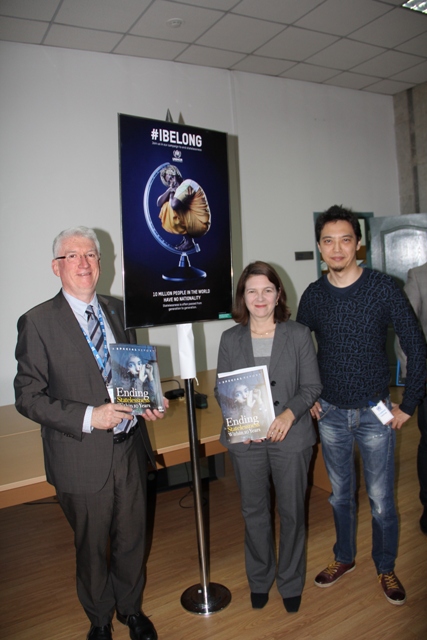Statement made by Ms. Elaine Conkievich, Head of UN Women MCO Central Asia, at the Launch of UNHCR Global campaign to end statelessness in 10 years.
Date:
It is my pleasure to support our colleagues from UNHCR in launching the Global Campaign to End Statelessness and supporting them further in their efforts to bring voices of stateless women and men to find practical ways and solutions to end statelessness in 10 years.
Stateless people are denied a nationality and by this, they are denied their basic rights. They are people who face many barriers and obstacles: without citizenship or identity documents, they are unable to own or rent property, secure formal employment or access services such as public health care, education and social welfare benefits. Statelessness affects people’s ability to marry and couples' decisions to start a family. For many people, this situation arises because of gender discrimination in the citizenship/nationality laws - when this legislation prevents women from acquiring, changing, retaining or passing on their nationality to their children and/or their spouses on an equal basis with men.

Displacement weakens existing community and family protection mechanisms, and exposes stateless women and girls to a range of human rights violations, including sexual and gender-based violence, abuse and exploitation.

We conducted recently in Almaty regional consultations with all five countries of Central Asia to discuss progress achieved by countries on the enforcement of Beijing Platform for Action adopted in 1995. Because of the consultations, a set of practical recommendations for states to enforce their gender equality commitments was developed and is being presented this week in Geneva. The recommendations highlight a need to overcome statelessness in the region by setting 2020 as a clear deadline for resolving the issue of persons without citizenship and irregular migrants from a human rights perspective. UN Women is proud to be a partner of UNHCR in this important campaign and we look forward to everyone dedicated contribution to ending statelessness.